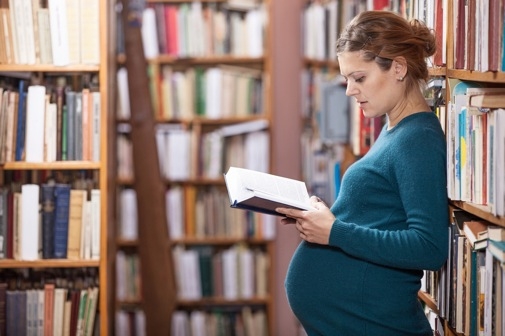Preventing Pregnancy Discrimination in Higher Education
Page Media

As a doctoral student in public health at UC Berkeley, Julia Goodman studies how maternity leave affects maternal and child health. This spring, she had to make a decision about her own maternity leave.
At the time of her pregnancy, Goodman was conducting research and working as a Graduate Student Instructor. Limiting the time she spent on these activities could mean a delay in her degree or pose a financial setback. Fortunately, all of Goodman’s professors were understanding of her scheduling changes and allowed her to join meetings or classes remotely.
But not all graduate students have this experience—some have been forced to take leaves of absence or limit their graduate studies solely due to pregnancy. As a result, some graduate students withdraw from their programs and never return. The attrition of women from graduate programs, largely due to a lack of clearly outlined leave policies, is especially high in the STEM fields (science, technology, engineering, and mathematics).
AB 2350, a bill by State Senator Susan Bonilla, addresses this issue by preventing pregnancy discrimination in higher education. The passage of AB 2350 would ensure that all graduate students receive the support and accommodations needed during and after pregnancy, just like Goodman.
“Being able to work when and where I wanted made it possible to fit in all the pregnancy-related appointments and still make some progress on my dissertation before the baby arrived. It's not that I wanted or needed to stop working entirely at the end of pregnancy, but I needed to have the option to work on things at my own pace,” said Goodman.
Additionally, Goodman took six weeks of paid maternity leave that UC Berkeley provides to doctoral students. This allowed her to take time off after childbirth and then ease back into work.
AB 2350 prohibits postsecondary educational institutions that receive federal funds from requiring a graduate student to take a leave of absence, withdraw from the graduate program, or limit his or her graduate studies solely due to pregnancy or pregnancy-related issues. This timely measure would also ensure that pregnant graduate students have reasonable accommodations to complete their program, be allowed additional time for exams when the student has taken a leave of absence due to pregnancy or recent birth, and be allowed to return to the program in good academic standing.
The success of pregnant graduate students should not depend on the institution they attend or on their advisors. Every pregnant graduate student should feel supported and encouraged to continue with their graduate studies. AB 2350 will be one step towards that success.
Angélica Salceda is an Equal Justice Works Fellow at ACLU of Northern California, sponsored by Fenwick & West.
